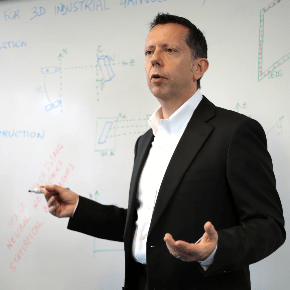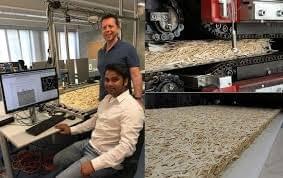An Interview with Ai Expert & Legendary Italian Scientist Vincenzo Piuri
In a world where everyone has some opinion on artificial intelligence and automation, it’s not often where one gets to hear the view of an expert on the subject.
Recently, I had the opportunity to talk with Vincenzo Piuri, a professor at the University of Milan in Italy. Piuri holds a PhD in computer engineering from Politecnico di Milano, where he worked as an associate professor. He has also served as a visiting professor at the University of Texas at Austin and George Mason University, and has worked with professors and is honorary professor at universities in Hungary, India, China, and Japan. He is a leader and active member of the Institute of Electrical and Electronics Engineers (IEEE), the world’s largest association of electrical engineering professionals.
Dr. Piuri’s research is primarily in artificial intelligence. Piuri is an expert in AI, computational intelligence, machine learning, neural networks, and signal and image processing. He is studying ways to use these technologies to create intelligent systems. While Piuri does study the theoretical aspects of these systems, he likes also to experiment their practical applications, including industrial manufacturing and biometrics. He believes that these technologies can also be used to improve research in many other fields. In addition, Piuri is interested in computer architecture and cloud computing.

Dr. Vincenzo Piuri.
I asked Dr. Piuri about his thoughts on the future of AI and machine learning. He first clarified that these technologies have been around for a few decades, but only recently have they generated widespread interest. This is for a few reasons. First, computer architecture can now support this type of computation in real time. Second, some applications of AI and machine learning are becoming more relatable to the general public. Autonomous vehicles, for example, generate a lot of attention due to their potential use by people everyday. Third, these technologies are now more accessible.
Formerly, one had to be an expert with advanced degrees in computer science to understand AI and machine learning. Now, thanks to advancements in the field as well as the presence of AI tools, more and more people are able to learn about this technology. Piuri believes that the future of AI is autonomy in learning: machines will be able to learn autonomously. They will not, he predicts, replace human jobs. Rather, these machines will augment human abilities in order to improve the quality of people’s life and goods produced.
As an expert in computer engineering, Dr. Piuri is highly involved in the IEEE. The IEEE is the world leading scientific and professional association in the field of electrical, electronic, computer and telecommunication engineering, and related disciplines, including information and communication technology, power engineering, industry automation, robotics, bioengineering, aerospace, transportations, and several more. They are publishing over 160 journals and organizing various conferences, networking events, and educational activities. They also study ways technology can be used to improve the quality of life, promote STEAM education, and support public policy.
Piuri is currently running for president of this organization. As president, he would like to focus more on the needs of individuals in the scientific and technical community by providing services and materials tailored to members’ specific needs. He wants to make the membership fee more affordable, personalize the bundle of services offered, ensure access to knowledge, and facilitate the search for knowledge, information, services, and products by introducing a recommendation system.
Piuri wants also to focus more on industry professionals, also by providing more practical knowledge to solve real-world problems. He likes to promote innovation also by means data, algorithms and experiments repositories. He also strives to ensure that the organization focuses more both on underserved areas and groups, in particular on young people by providing materials explicitly made for them. In this way, the IEEE can establish itself more prominently both globally and locally.

Dr Piuri working at his lab at the University of Milan.
Why Choose Machine Learning Over A Traditional Financial Advisor?
Deep Fakes: Terror In A Data Driven World
Nuclear Submarines: A 7,000 Lb Swiss Watch
Ai Can Write Its Own Computer Program
On Black Holes: Gateway to Another Dimension, or Ghosts of Stars’ Pasts?
Supersonic Travel: The Future of Aviation
Lockheed Martin Confirms the SR-72 – Son of Blackbird Will Reach Anywhere in the World in One Hour
Conversation with Bloomberg's Former Head of Trading on the Future of Humans in the Trading Industry
Shedding Light on Dark Matter: Using Machine Learning to Unravel Physics’ Hardest Questions
Aquaponics: How Advanced Technology Grows Vegetables In The Desert
The Perfect Beer: Using Artificial Intelligence to Personalize Goods
The World Cup Does Not Have a Lasting Positive Impact on Hosting Countries
The Implications of Machine Learning on Condensed Matter Physics & Quantum Computing
Written by Jack Vasquez, Edited by Alexander Fleiss